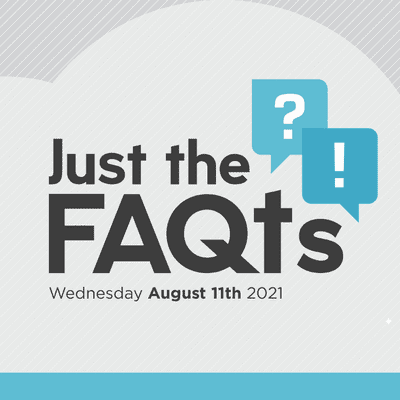
Just The FAQts
englanti
Talous & ura
Rajoitettu tarjous
2 kuukautta hintaan 1 €
Sitten 7,99 € / kuukausiPeru milloin tahansa.
- Podimon podcastit
- Lataa offline-käyttöön
Lisää Just The FAQts
The ever-shifting landscape of business trends, new technologies, and regulations can be difficult to make sense of. On Just The FAQTs, we cut through the noise and explain what you need to know to stay in the loop of B2B news.
Kaikki jaksot
1 jaksotHow Will Updates to the Packers and Stockyards Act Shape Agriculture's B2B Relationships?
In Biden's anti-trust executive orders targeting anti-competitive practices in agriculture, the administration has emphasized the Packers and Stockyards Act as one of the critical laws that'll be revised and enforced to protect farmers' and growers' interests. On this episode of Just the FAQts, we're exploring the what and the why behind the Packers & Stockyards Act and how it applies to agriculture industry professionals in today's industry context. Giving insights is Hayden Ballard, Attorney, Utah Public Lands Policy Coordinating Office. Ballard, who grew up in the cattle industry, has maneuvered the legalese of these acts professionally, and explains how "The broad purpose of the Packers and Stockyards Act is to prevent anti-competitive practices in the meat-packing industry," Ballard said. "Really, at its core, it's an anti-trust statute, so it protects against anti-competitive practices and also helps to protect the free traded of commerce for producers in the beef, chicken, and hog industries." Passed in 1921, the Act was 30 years in the making and involved developing the beef cattle industry in America. After the Civil War ended in 1865, there was a huge demand for beef in the ever-industrializing north, Ballard said. The ranches out west had to somehow get their beef to market, so there were massive cattle drives. After being sold to brokers, the cattle were in stockyards in large cities, such as Kansas City. With a lot of moving parts, the packing companies saw this as inefficient and affecting their bottom lines. They worked to create deals, and this eventually led to some price-fixing and non-compete agreements. This caused Congress to start investigating, and the Packers and Stockyards Act worked to prevent these anti-competitive practices from taking hold. In today's world, if a producer feels they have been subjected to an anti-competitive or monopolistic device, they have two ways they can look out for their own interests. Listen to hear more about how the Packers and Stockyards Act works in today's world and the changes it will endure under the Biden Administration.
Valitse tilauksesi
Rajoitettu tarjous
Premium
Podimon podcastit
Lataa offline-käyttöön
Peru milloin tahansa
2 kuukautta hintaan 1 €
Sitten 7,99 € / kuukausi
Premium
20 tuntia äänikirjoja
Podimon podcastit
Lataa offline-käyttöön
Peru milloin tahansa
30 vrk ilmainen kokeilu
Sitten 9,99 € / kuukausi
Premium
100 tuntia äänikirjoja
Podimon podcastit
Lataa offline-käyttöön
Peru milloin tahansa
30 vrk ilmainen kokeilu
Sitten 19,99 € / kuukausi
2 kuukautta hintaan 1 €. Sitten 7,99 € / kuukausi. Peru milloin tahansa.















































